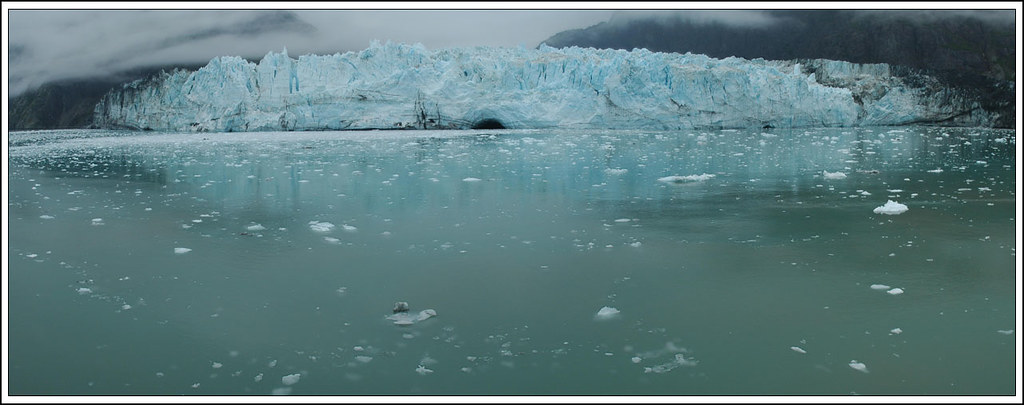Disruptive Innovation: AutoStitch
Being an enthusiastic amateur photographer, I have always longed for the day when I can produce beautiful panoramic pictures. I have been reading about how to do it since years ago in magazines, newsletters and on the Internet. I have faithfully saved all the information I can gather. I believed I had learned enough to actually understand the whole process:
I discovered, even if I had bought the equipment, I would not have had the opportunity to use it, because the ship was always moving (well, most interesting scenes came by when the ship was sailing). So I would not have had perfect alignment for my pictures anyway.
I took some rough panoramic shots (roughly aligned horizon, overlaps between pictures, on tripod or handheld, same exposure across all pictures), thinking I might be able to do something with them. But the thought of the time needed to stitch them kept me from doing it after I came back. Until I saw a beautiful panoramic picture posted on dpreview.com. When asked, the author said, I just turned around and took pictures one by one and then stitched them together with AutoStitch. That was the light bulb moment.
I immediately downloaded AutoStitch and started working. Here is the result:

Margerie Glacier, Glacier Bay, Alaska
And this:

Inside Passage, Alaska
No expensive equipment, no nodal point, no perfect alignment, ship was moving, no fiddling with stitching software. All is automatic. Job was done perfectly. If I had known this, I would have taken many more panoramic pictures. Oh, well, next time for sure.
This is a disruptive innovcation as it is so much ahead of the rest of the pack (BTW, it's free, proving great things are not necessarily motivated by money). It's a whole new level of usability. I don't think I would have gotten into panoramic photography without it because I just don't have that much time to spare. We need this kind of innovations everywhere, everyday!
Thank you, Matthew!
- Buy expensive equipment (such as this, this and this).
- Find the nodal point of your lens, which is not an easy process.
- Set up equipment to make sure your tripod is level and you only rotate around the nodal point of your lens, which is cumbersome.
- Make sure you have a certain amount (say, 50%) of overlap between shots. Probably the easiest to achieve among all the steps.
- Use a good stitching program (many choices, which one to use?) to stitch the pictures together into a panorama. Takes a fair amount of time to get right.
I discovered, even if I had bought the equipment, I would not have had the opportunity to use it, because the ship was always moving (well, most interesting scenes came by when the ship was sailing). So I would not have had perfect alignment for my pictures anyway.
I took some rough panoramic shots (roughly aligned horizon, overlaps between pictures, on tripod or handheld, same exposure across all pictures), thinking I might be able to do something with them. But the thought of the time needed to stitch them kept me from doing it after I came back. Until I saw a beautiful panoramic picture posted on dpreview.com. When asked, the author said, I just turned around and took pictures one by one and then stitched them together with AutoStitch. That was the light bulb moment.
I immediately downloaded AutoStitch and started working. Here is the result:

And this:

No expensive equipment, no nodal point, no perfect alignment, ship was moving, no fiddling with stitching software. All is automatic. Job was done perfectly. If I had known this, I would have taken many more panoramic pictures. Oh, well, next time for sure.
This is a disruptive innovcation as it is so much ahead of the rest of the pack (BTW, it's free, proving great things are not necessarily motivated by money). It's a whole new level of usability. I don't think I would have gotten into panoramic photography without it because I just don't have that much time to spare. We need this kind of innovations everywhere, everyday!
Thank you, Matthew!



<< Home